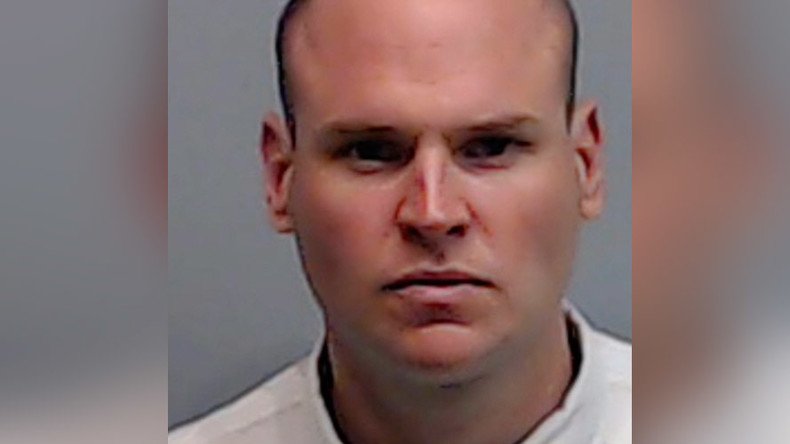Fmr Atlanta police officer indicted for killing unarmed black man

A Fulton County grand jury has charged former Atlanta police officer James Burns with felony murder for the fatal shooting of Deravis Caine Rogers. He also faces charges for making a false statement, aggravated assault and violation of the oath of office.
On Wednesday, a grand jury decided that there was enough doubt about Burns’ claim of self-defense in the killing of Rogers, 22, to indict him on felony murder and aggravated assault charges. The Atlanta Police Department did not stand behind Burns, firing him less than two weeks after the shooting.
Former Atlanta cop charged with murder of unarmed black man after fatal shooting https://t.co/39PI6K7L5n
— RT America (@RT_America) July 16, 2016
On June 22, Burns responded to a call about a suspicious person from an off-duty officer working security at an Atlanta apartment complex. When he arrived, he blocked Rogers’ car and fired a shot into it, hitting him in the head and killing him.
In Burns’ version of events, he was responding to the call from an officer in danger and sped through traffic to the Monroe Place Apartments. He claims that when he arrived, Rogers’ 2011 silver Ford Fusion was parked against traffic and the driver refused to stop. He then attempted to block Rogers’ car and claims that Rogers tried to hit him, prompting Burns to open fire and kill Rogers.
“I shot at the car who was trying to run me over and kill me,” he told investigators a week after the incident.
However, an investigation of the incidence led Atlanta Police Chief George N. Turner to reject this version of events.
“The evidence in the file does not support his version of what happened,” Atlanta police spokesman Sgt. Warren Pickard told the Atlanta Journal-Constitution.
Evidence gathered by investigators found that the ordeal lasted between four and five minutes, but that Burns was unlikely to be in danger. In fact, none of the information conveyed to Burns would have given him reason to believe that Rogers was the suspicious person the off-duty officer told him about.
Georgia cop indicted for fatal shooting of an unarmed, naked Air Force vethttps://t.co/LfmnXGH2a2pic.twitter.com/P0mLIMg9i5
— RT America (@RT_America) January 22, 2016
“It became apparent that the officer did not know anything about the person in the car and without knowing any specific facts, he made a decision that ended up being exactly the wrong decision,” Fulton County District Attorney Paul Howard told the Associated Press.
In addition, the shots were found to be fired from the rear of Burns’ vehicle and through the passenger side, which contradicts Burns’ claim that he was firing to keep from being run over.
Rogers’ death led to protests in Atlanta, including a 24-hour demonstration outside of the courthouse that began on Tuesday to demand an indictment. Rogers’ attorney, Drew Findling, cited the demonstrations as cause to file an emergency motion to delay the grand jury proceeding "due to lack of secrecy of the proceeding and undue influence by outside sources."
"That's not the way grand juries work. A grand jury is not supposed to base a decision on what they see in the street. They're supposed to base a decision on what they see in there," he said
Meanwhile, Rogers’ mother Melva Rogers told the crowd of demonstrators that she does not believe her son died in vain.












